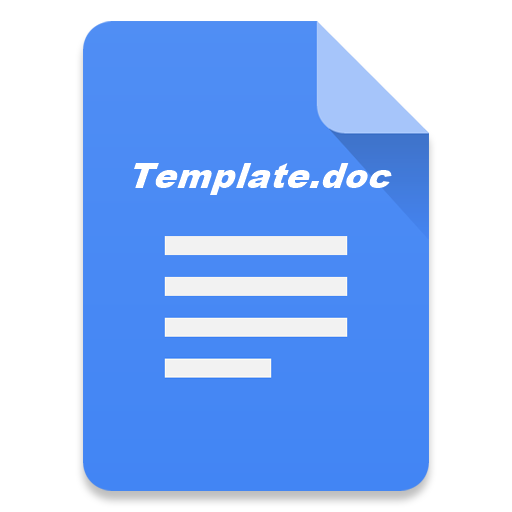STUDI INTERAKSI SENYAWA BAKU PEMBANDING DARI ANDALAS SITAWA FITOLAB TERHADAP KLEBSIELLA PNEUMONIAE DENGAN IN SILICO
Sari
Bakteri, virus dan mycoplasma dapat menyebabkan pneumonia. Klebsiella pneumoniae adalah penyebab umum infeksi resisten antimikroba pada pasien rawat inap. Miroba ini secara alami resisten terhadap penisilin. Pnemoniae dapat disebabkan oleh bakteri, virus dan mycoplasma. Bakteri Klebsiella pneumoniae mampu menginfeksi dan memperparah pasien yang terkena penyakit COVID-19. Bakteri ini telah resisten terhadap antibiotik. Dilakukan metode molecular docking untuk memprediksi interaksi antara klebsiella pneumoniae dan senyawa bahan alam yang terdapat pada database andalas sitawa yaitu Alpha Mangostin, Andrographolide, Asiaticoside, Catechin. Curcumin, Deoxyelephantopin, Ethyl methoxycinnamate, Hydroxychavicol, Piperine dan Plumbagin. Perangkat lunak yang digunakan dalam simulasi yaitu Autodock Vina. Optimasi geometri dilakukan dengan MMFF94 untuk senyawa bahan alam. Dari hasil diperoleh senyawa yang memiliki energi bebas gibbs yang terbaik adalah Asiaticoside dengan energi -10.22 (kcal/mol). Asiaticoside memiliki interaksi pada asam amino yaitu Ikatan Hidrogen pada asam amino Asn79, Arg151 selanjutnya Ikatan Van der walls pada Ile152, Met156, dan Ser156. Ikatan Pi-Alkyl pada asam amino Tyr125, His195 dan ikatan Alkyl pada asam amino Arg155. Simulasi dinamika molekul senyawa Asitiacoside dengan protein fluktuasi terbesar pada residu asam amino 245-248 yaitu Leusine, Tyrosine, Phenylalanine, dan Glutamine dengan rentang fluktuasi 3,2169-3,2525 nm
Kata Kunci
Teks Lengkap:
PDF (English)Referensi
Abraham, M. J., Murtola, T., Schulz, R., Páll, S., Smith, J. C., Hess, B., & Lindah, E. (2015). Gromacs: High performance molecular simulations through multi-level parallelism from laptops to supercomputers. SoftwareX, 1–2, 19–25. https://doi.org/10.1016/j.softx.2015.06.001
Cho, J., Lee, M., Skyler Cochrane, C., Webster, C. G., Fenton, B. A., Zhao, J., Hong, J., & Zhou, P. (2020). Structural basis of the UDP-diacylglucosamine pyrophosphohydrolase LpxH inhibition by sulfonyl piperazine antibiotics. Proceedings of the National Academy of Sciences of the United States of America, 117(8), 4109–4116. https://doi.org/10.1073/pnas.1912876117
Cuscino, N., Fatima, A., Di Pilato, V., Bulati, M., Alfano, C., Monaca, E., Di Mento, G., Di Carlo, D., Cardinale, F., Monaco, F., Rossolini, G. M., Khan, A. M., Conaldi, P. G., & Douradinha, B. (2022). Computational design and characterization of a multiepitope vaccine against carbapenemase-producing Klebsiella pneumoniae strains, derived from antigens identified through reverse vaccinology. Computational and Structural Biotechnology Journal, 20, 4446–4463. https://doi.org/10.1016/j.csbj.2022.08.035
Eberhardt, J., Santos-Martins, D., Tillack, A. F., & Forli, S. (2021). AutoDock Vina 1.2.0: New Docking Methods, Expanded Force Field, and Python Bindings. Journal of Chemical Information and Modeling, 61(8), 3891–3898. https://doi.org/10.1021/acs.jcim.1c00203
Gao, Y., Lee, J., Smith, I. P. S., Lee, H., Kim, S., Qi, Y., Klauda, J. B., Widmalm, G., Khalid, S., & Im, W. (2021). CHARMM-GUI Supports Hydrogen Mass Repartitioning and Different Protonation States of Phosphates in Lipopolysaccharides. Journal of Chemical Information and Modeling, 61(2), 831–839. https://doi.org/10.1021/acs.jcim.0c01360
Halgren, T. A. (1996). Merck molecular force field. I. Basis, form, scope, parameterization, and performance of MMFF94. Journal of Computational Chemistry, 17(5–6), 490–519. https://doi.org/10.1002/(SICI)1096-987X(199604)17:5/6<490::AID-JCC1>3.0.CO;2-P
Huang, Jia, Zhou, X., Gong, Y., Chen, J., Yang, Y., & Liu, K. (2022). Network pharmacology and molecular docking analysis reveals the mechanism of asiaticoside on COVID-19. Annals of Translational Medicine, 10(4), 174–174. https://doi.org/10.21037/atm-22-51
Huang, Jing, Rauscher, S., Nawrocki, G., Ran, T., Feig, M., De Groot, B. L., Grubmüller, H., & MacKerell, A. D. (2016). CHARMM36m: An improved force field for folded and intrinsically disordered proteins. Nature Methods, 14(1), 71–73. https://doi.org/10.1038/nmeth.4067
Karami-Zarandi, M., Ghale, H. E. G., & Ranjbar, R. (2022). Characterization of virulence factors and antibacterial activity of curcumin in hypervirulent Klebsiella pneumoniae. Future Microbiology, 17(7), 529–540. https://doi.org/10.2217/fmb-2021-0222
Kuhn, M., von Mering, C., Campillos, M., Jensen, L. J., & Bork, P. (2008). STITCH: Interaction networks of chemicals and proteins. Nucleic Acids Research, 36(SUPPL. 1). https://doi.org/10.1093/nar/gkm795
Lee, J., Cheng, X., Swails, J. M., Yeom, M. S., Eastman, P. K., Lemkul, J. A., Wei, S., Buckner, J., Jeong, J. C., Qi, Y., Jo, S., Pande, V. S., Case, D. A., Brooks, C. L., MacKerell, A. D., Klauda, J. B., & Im, W. (2016). CHARMM-GUI Input Generator for NAMD, GROMACS, AMBER, OpenMM, and CHARMM/OpenMM Simulations Using the CHARMM36 Additive Force Field. Journal of Chemical Theory and Computation, 12(1), 405–413. https://doi.org/10.1021/acs.jctc.5b00935
Mark, P., & Nilsson, L. (2001). Structure and dynamics of the TIP3P, SPC, and SPC/E water models at 298 K. Journal of Physical Chemistry A, 105(43), 9954–9960. https://doi.org/10.1021/jp003020w
Navon-Venezia, S., Kondratyeva, K., & Carattoli, A. (2017). Klebsiella pneumoniae: A major worldwide source and shuttle for antibiotic resistance. FEMS Microbiology Reviews, 41(3), 252–275. https://doi.org/10.1093/femsre/fux013
Nguyen, M., Brettin, T., Long, S. W., Musser, J. M., Olsen, R. J., Olson, R., Shukla, M., Stevens, R. L., Xia, F., Yoo, H., & Davis, J. J. (2018). Developing an in silico minimum inhibitory concentration panel test for Klebsiella pneumonia. Scientific Reports, 8(1). https://doi.org/10.1038/s41598-017-18972-w
Panda, S. K., Saxena, S., & Guruprasad, L. (2020). Homology modeling, docking and structure-based virtual screening for new inhibitor identification of Klebsiella pneumoniae heptosyltransferase-III. Journal of Biomolecular Structure and Dynamics, 38(7), 1887–1902. https://doi.org/10.1080/07391102.2019.1624296
Putra, P. P. (2022). Teori dan Tutorial Molecular Docking Menggunakan AutoDock Vina (1st ed.). Wawasan Ilmu. ISBN: 978-623-5493-35-0
Putra, P. P., Fauzana, A., & Lucida, H. (2020). In Silico Analysis of Physical-Chemical Properties, Target Potential, and Toxicology of Pure Compounds from Natural Products. Indonesian Journal of Pharmaceutical Science and Technology, 7(3), 107. https://doi.org/10.24198/ijpst.v7i3.26403
Putra, P. P., & Junaidin. (2022). Simulasi dinamika molekuler protein-ligand, perhitungan MMPBSA dan MMGBSA menggunakan GROMACS (1st ed.). Future Science. ISBN: 978-623-98383-3-1
Sivaramakrishnan, V., Thiyagarajan, C., Kalaivanan, S., Selvakumar, R., Anusuyadevi, M., & Jayachandran, K. (2012). Homology modeling, molecular docking and electrostatic potential analysis of MurF ligase from Klebsiella pneumonia. Bioinformation, 8(10), 466–473. https://doi.org/10.6026/97320630008466
Sulayyim, H. J. Al, Ismail, R., Hamid, A. Al, & Abdul Ghafar, N. (2022). Antibiotic Resistance during COVID-19: A Systematic Review. International Journal of Environmental Research and Public Health, 19(19), 11931. https://doi.org/10.3390/ijerph191911931
Trott, O., & Olson, A. J. (2009). AutoDock Vina: Improving the speed and accuracy of docking with a new scoring function, efficient optimization, and multithreading. Journal of Computational Chemistry, NA-NA. https://doi.org/10.1002/jcc.21334
Waters, M. L., Krone, M. W., Travis, C. R., Lee, G. Y., Eckvahl, H. J., & Houk, K. N. (2020). More than π-π-π stacking: Contribution of amide-π and CH-π interactions to crotonyllysine binding by the AF9 YEATS domain. Journal of the American Chemical Society, 142(40), 17048–17056. https://doi.org/10.1021/jacs.0c06568
Zhang, G., Jiang, C., Xie, N., Xu, Y., Liu, L., & Liu, N. (2019). Treatment with andrographolide sulfonate provides additional benefits to imipenem in a mouse model of Klebsiella pneumoniae pneumonia. Biomedicine and Pharmacotherapy, 117. https://doi.org/10.1016/j.biopha.2019.109065
Zhuang, W. R., Wang, Y., Cui, P. F., Xing, L., Lee, J., Kim, D., Jiang, H. L., & Oh, Y. K. (2019). Applications of π-π stacking interactions in the design of drug-delivery systems. Journal of Controlled Release, 294, 311–326. https://doi.org/10.1016/j.jconrel.2018.12.014
DOI: http://dx.doi.org/10.47653/farm.v10i1.641
Refbacks
- Saat ini tidak ada refbacks.

Jurnal Farmagazine is licensed under a Creative Commons Attribution-ShareAlike 4.0 International License.
Lembaga Penelitian dan Pengabdian kepada Masyarakat (LPPM)
Alamat Redaksi: Jln. KH Syekh Nawawi (Raya Pemda) KM. No. 4, Mata Gara, Kec. Tigaraksa, Tangerang, Banten 15720
Email: lppm@stfm.ac.id
Indexed By








